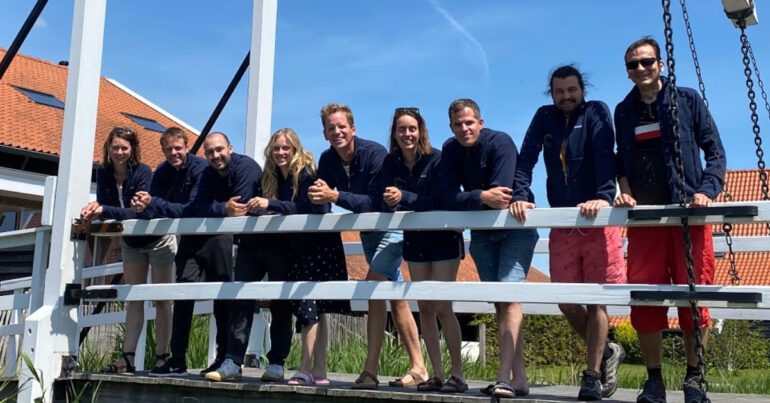TL;DR:
- Cradle, a biotech startup, emerges from stealth with €5.5 million in seed funding.
- Their synthetic biology platform employs AI to design and program proteins with specific properties.
- The technology aids scientists in modifying proteins for enhanced stability and functionality.
- Cradle’s platform accelerates bioengineering processes and reduces time-to-market.
- The funding, co-led by Index Ventures and Kindred Capital, supports product development and partnerships.
Main AI News:
In a groundbreaking move, Cradle, the innovative platform company dedicated to aiding scientists in the design and programming of proteins, emerges from stealth mode with an impressive €5.5 million (US$5.4 million) in seed funding. Their pioneering synthetic biology platform leverages the capabilities of artificial intelligence to craft protein machines and cell factories with precision and efficiency.
Cradle’s cutting-edge technology empowers scientists with the remarkable ability to reverse engineer proteins, tailoring them to possess specific properties of interest. This transformative approach has yielded a working synthetic biology platform that has already found favor with numerous early-stage design collaborators. For instance, imagine a biologist’s need to enhance a protein’s stability at a specific temperature, ensuring its affinity for a particular chemical compound. Cradle’s revolutionary technology, featuring self-teaching, self-improving generative machine learning models drawing inspiration from recent advancements in natural language processing, adeptly anticipates the genetic code modifications required. This strategic advantage significantly enhances a scientist’s likelihood of achieving their desired experimental outcomes, as highlighted in the company’s press release on November 17, 2022.
The Cradle platform goes a step further by optimizing the performance of these extensive molecular models for specialized tasks within the realm of biological research. Additionally, the company offers an intuitive, collaborative online platform, making these models accessible even to scientists lacking a background in machine learning. This approach holds the potential to revolutionize the timeline and cost associated with bringing synthetic biology products to market, possibly reducing them by an order of magnitude, as outlined in the company’s press release.
Stef van Grieken, Cradle’s CEO and co-founder, eloquently explains, “Consider cells as miniature factories, with proteins serving as the assembly lines and machinery enabling them to produce diverse end-products. Through precise adjustments, we can engineer proteins that optimize the production of an array of novel products, all while significantly reducing their environmental footprint.” He continues, “Traditional methods may see biologists spending years searching for solutions to specific challenges. By harnessing the prowess of machine learning, our platform expedites the design, construction, and scaling phases in the bioengineering of proteins, enabling the swift and cost-effective realization of synthetic biology projects. Our mission is to slash the time and cost of bringing bio-based products to market by an order of magnitude, empowering anyone—even ‘two kids in their garage’—to introduce bio-based innovations to the world.”
The recently secured seed funding will fuel Cradle’s endeavors to accelerate product development, expand its service portfolio, bolster its team, and facilitate the onboarding of additional design partners. This vital funding round was jointly led by Index Ventures and Kindred Capital, with prominent angel investors, including Feike Sijbesma, honorary chairman and former CEO of Royal DSM, and Emily Leproust, founder of Twist Bioscience, also participating in the initiative.
Conclusion:
Cradle’s successful funding round and innovative AI-powered protein engineering platform signal a significant advancement in the biotech market. Their ability to expedite bioengineering processes and reduce costs holds the potential to reshape the industry, making it more accessible for a broader range of innovators and accelerating the development of bio-based products. This could lead to a wave of novel applications and a more sustainable approach to product development in the biotech sector.

